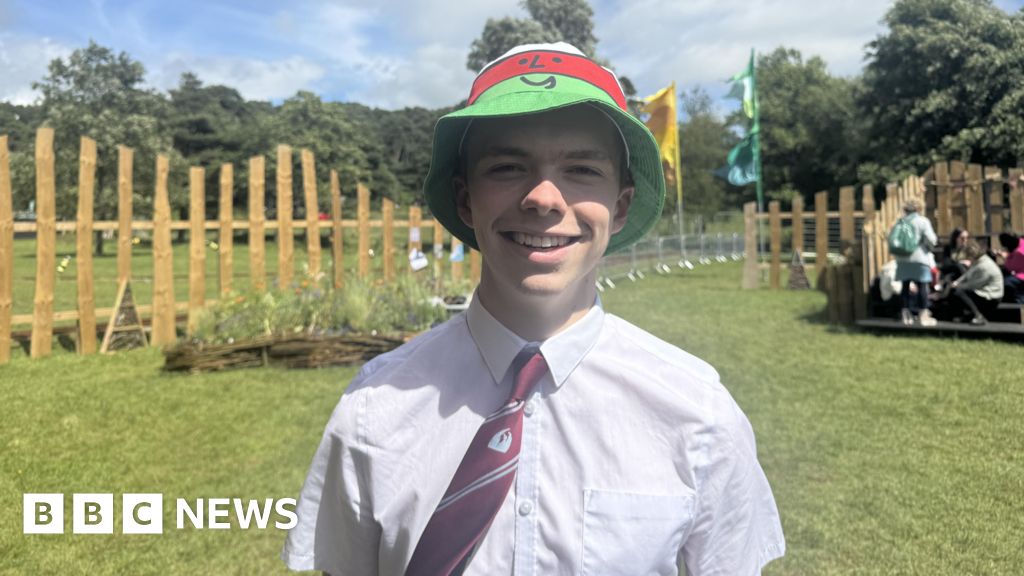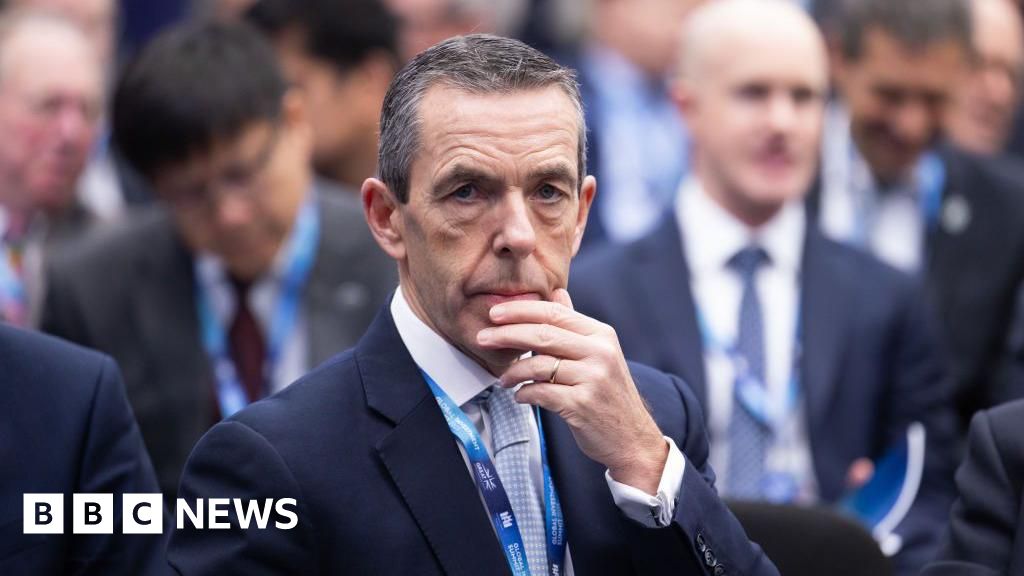- Social Media
Judge: Harvard researcher charged with smuggling frog embryos was unlawfully detained by ICE
时间:2010-12-5 17:23:32 作者:Health 来源:Lifestyle 查看: 评论:0内容摘要:Water plants deeply during dry spells but avoid overwatering.Water plants deeply during dry spells but avoid overwatering.
Busch has one top-5 finish this season. He is 17th in the point standings.“I think we will win a race with him this year,” Childress said. “We have to work smarter and that is what we are trying to do. We have a lot of good things going.”

The polarizing Busch, known for his outbursts and rants, called the losing streak “a little humbling.”“I’m excited for the next win whenever that is,” Busch said. “I feel like there are times where it gives you that motivation and gives you that itch to get back to victory lane.”Childress said there is hope that he can sign Busch to a long-term extension at some point in the future.

“There is a big future for Kyle,” Childress said.Busch said he has not considered retiring from racing, He said that is something he will reconsider once his 10-year-old son, Brexton, is old enough to get into racing on the national circuit.

Busch will run Sunday in the Coca-Cola 600, a race
INDIANAPOLIS (AP) — A rookie driver for a brand new team won the pole for the Indianapolis 500 on a strange day at Indianapolis Motor Speedway, whereKedian was diagnosed with a rare laryngeal cartilage cancer about a decade ago. The Haverhill, Massachusetts, man underwent more than a dozen surgeries, eventually needing a trach tube to help him breathe and swallow — and struggled even to muster a raspy whisper through it. He had to retire on disability.
Still the once gregarious Kedian, known for long conversations with strangers, wouldn’t let doctors remove his entire larynx to cure the cancer. He desperately wanted to read bedtime stories to his granddaughter, with his own voice rather than what he called robotic-sounding speech devices.Then Kedian’s wife Gina tracked down the Mayo study. Lott decided he was a good candidate because his cancer wasn’t fast-growing and -- especially important -- Kedian already was taking antirejection drugs for an earlier kidney transplant.
It took 10 months to find a deceased donor with a healthy enough larynx just the right size.Then on Feb. 29, six surgeons operated for 21 hours. After removing Kedian’s cancerous larynx, they transplanted the donated one plus necessary adjoining tissues – thyroid and parathyroid glands, the pharynx and upper part of the trachea – and tiny blood vessels to supply them. Finally, using new microsurgical techniques, they connected nerves critical for Kedian to feel when he needs to swallow and to move the vocal cords.
- 最近更新
- 2025-07-07 04:40:24Wall Street drifts through a quiet day
- 2025-07-07 04:40:24Thune's first big test as Senate leader has arrived with Trump's tax bill
- 2025-07-07 04:40:24Here are the 19 countries Trump placed under travel bans and restrictions
- 2025-07-07 04:40:24US bombs Iran: What we know about US strikes on Iran’s nuclear facilities
- 2025-07-07 04:40:24South Korean lawmakers approve special investigations into martial law and Yoon's wife
- 2025-07-07 04:40:24Senior Trump officials say US attacks on Iran ‘not about regime change’
- 2025-07-07 04:40:24India says it will ‘never’ restore Indus Waters Treaty with Pakistan
- 2025-07-07 04:40:24Former congressional candidate running against US Sen. Tommy Tuberville for Alabama governor
- 热门排行
- 2025-07-07 04:40:24celebrating the ninth birthday
- 2025-07-07 04:40:24Andrew Cuomo faces attacks from all sides in New York City mayoral debate
- 2025-07-07 04:40:24Being A Loyal Auto Insurance Customer Can Cost You
- 2025-07-07 04:40:24Former congressional candidate running against US Sen. Tommy Tuberville for Alabama governor
- 2025-07-07 04:40:24Iran has not agreed to inspections or given up enrichment, says Trump
- 2025-07-07 04:40:24Federal judge says migrants sent to El Salvador must be able to challenge removals
- 2025-07-07 04:40:245 retirement withdrawal steps to make your money last longer
- 2025-07-07 04:40:24Is Trump planning an ‘Africa visa ban’?
- 友情链接
- UK backs Morocco's plan in disputed Western Sahara Authorities determine the cause of death of a man whose burned body was found on Stone Mountain Death toll reaches at least 200 in Nigerian town submerged in floods Death toll reaches at least 200 in Nigerian town submerged in floods Serbia's protesting students rally nationwide, putting pressure on Vucic to call early elections Serbia's protesting students rally nationwide, putting pressure on Vucic to call early elections Authorities determine the cause of death of a man whose burned body was found on Stone Mountain Authorities determine the cause of death of a man whose burned body was found on Stone Mountain Authorities determine the cause of death of a man whose burned body was found on Stone Mountain Death toll reaches at least 200 in Nigerian town submerged in floods Alcaraz gives point to Shelton on racket fling Authorities determine the cause of death of a man whose burned body was found on Stone Mountain Authorities determine the cause of death of a man whose burned body was found on Stone Mountain Ser católico en una universidad secular puede ser un desafío; otros lo ven como una bendición Death toll reaches at least 200 in Nigerian town submerged in floods Alcaraz gives point to Shelton on racket fling Authorities determine the cause of death of a man whose burned body was found on Stone Mountain Death toll reaches at least 200 in Nigerian town submerged in floods Ser católico en una universidad secular puede ser un desafío; otros lo ven como una bendición UK backs Morocco's plan in disputed Western Sahara Death toll reaches at least 200 in Nigerian town submerged in floods Alcaraz gives point to Shelton on racket fling Ser católico en una universidad secular puede ser un desafío; otros lo ven como una bendición Death toll reaches at least 200 in Nigerian town submerged in floods Alcaraz gives point to Shelton on racket fling Ser católico en una universidad secular puede ser un desafío; otros lo ven como una bendición Alcaraz gives point to Shelton on racket fling Serbia's protesting students rally nationwide, putting pressure on Vucic to call early elections Death toll reaches at least 200 in Nigerian town submerged in floods Alcaraz gives point to Shelton on racket fling
